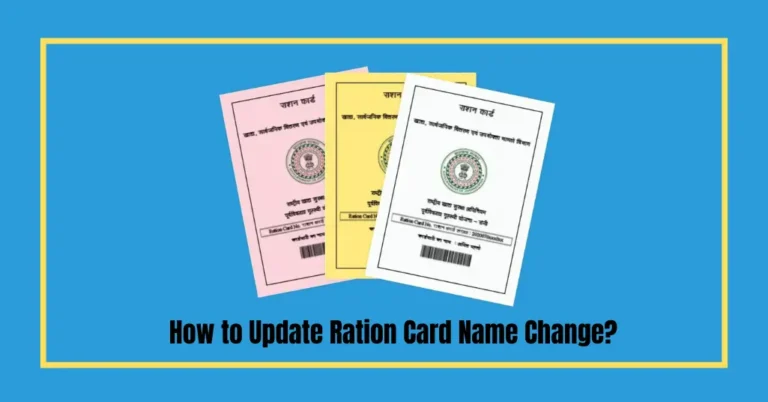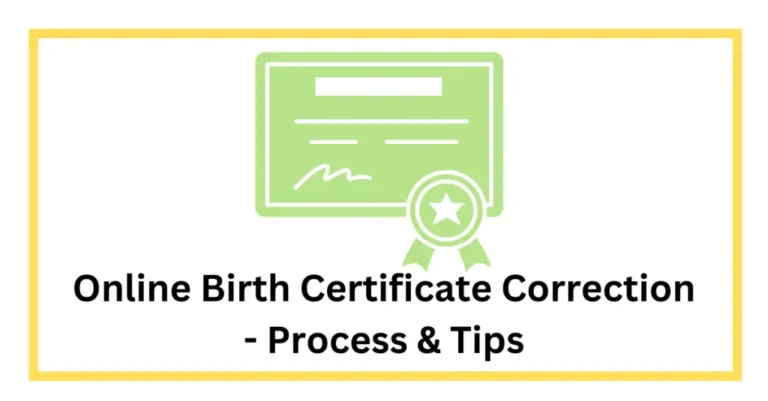If you're ready to transform your identity through a legal name change, join us as we navigate the considerations, implications, and steps involved in this significant personal journey.
Overview
Are you contemplating a legal name change, seeking a fresh start with a name you truly resonate with? If the idea of permanently changing your name has been on your mind and you’re ready to take this significant step, we’re here to assist you throughout the process.
Changing your name can be a transformative decision, offering the opportunity for a new and positive chapter in your life. If you’ve long harbored the desire for a name that resonates better with your identity, now is the time to embark on this journey.
While the motivations for changing one’s name can vary, the decision warrants careful consideration of both the advantages and potential challenges. Whether you’re looking to shed a name you’ve never liked or embracing a name that holds personal significance, understanding the pros and cons is crucial.
In this comprehensive guide, we’ll walk you through everything you need to know about changing your name legally. From the intricacies of the process to the potential impact on various aspects of your life, we aim to provide you with the information necessary for an informed decision.
Pros Of Legally Changing Your Name
Changing your name comes with several noteworthy advantages, the foremost being self-satisfaction. The decision to officially change your name allows you to experience the joy of adopting a name that resonates with your identity, enabling a fresh and positive start in your life. Let’s delve into the pros of embracing this transformative journey:
1. Wide Range of Options:
When you decide to change your name, you open the door to a plethora of options. The modern world provides you with the freedom to choose any name that suits your preferences. Unlike those who find the process daunting, you have the opportunity to be creative and select a name that aligns with your personality and aspirations. While creativity is encouraged, certain restrictions apply, such as avoiding vulgar or obscene names, refraining from copying a celebrity’s name verbatim, and steering clear of trademarked names. Importantly, changing your name to evade fraud, crime, or arrest is strictly prohibited.
2. Bid Farewell to Unwanted Names:
Parents often choose names for their children based on trends at the time of their birth. As you grow older, you may find yourself disliking the name given to you. If your name is common and lacks uniqueness, the process of changing your name provides an opportunity to bid farewell to the name you no longer resonate with. Seize this chance to choose a name that is distinctive and sets you apart. The selection process demands careful consideration, making it essential to choose a name that aligns with your identity.
3. Endless Possibilities:
The name you choose is essentially up to you, and the possibilities are limitless. Contrary to a common misconception that people must endure names they dislike, changing your name empowers you to be creative. You can explore names that truly complement your personality and align with your life goals. While certain restrictions exist, such as avoiding obscene or trademarked names, or those identical to celebrities, you have the flexibility to choose a name that resonates authentically with you. The process allows for a fresh start and the opportunity to embrace a name that reflects your true self.
Cons Of Legally Changing Your Name:
While the process of changing your name offers several benefits, it’s essential to be aware of certain considerations that might be perceived as drawbacks. Here are some factors to keep in mind:
1. Incurs Costs:
Changing your name is not a cost-free endeavor. The legal process involves various fees that you need to account for. Initiating the name change process requires submitting a petition, which needs approval and notarization. If your name change is associated with marriage or divorce, additional documents might be necessary. While court fees may not be exorbitant, there are other associated costs. It’s advisable to gather information on fees and required documents from official government websites, noting that these details may vary from state to state.
2. Communication Challenges:
After changing your name, you’ll find yourself explaining the reasons behind your decision repeatedly. People will naturally be curious, and you may face a barrage of questions. This continuous need for clarification can become tiresome over time. Additionally, adjusting to your new name may take longer for others than you anticipate. People around you, including friends, family, and colleagues, might continue using your old name, leading to a prolonged period of adjustment. Furthermore, you’ll need to undertake significant paperwork to update your name across various domains, including your school, workplace, and other institutions. While the initial months may be confusing, everyone will gradually adapt to your new name.
It’s crucial to weigh these considerations against the benefits of changing your name, and make an informed decision aligned with your personal goals and circumstances.
Conclusion
In contemplating the decision to change your name, it’s essential to weigh the pros and cons carefully. The advantages, such as self-satisfaction and the opportunity to choose a name you resonate with, must be considered alongside the drawbacks, including associated costs and the need for extensive communication and paperwork.
When selecting your new name, exercise utmost care and deliberate thought, as this decision carries lasting implications. Changing your name is not a process that can be easily reversed, and hence requires careful consideration.
Should you decide to proceed with a name change and seek assistance in navigating the legal process, Vakilsearch stands ready to be your comprehensive solution. Our experts can guide you through this transformative journey and ensure a hassle-free process.
FAQs
1. Can I change my name legally in India?
Yes, you can change your name legally in India. The process involves making an affidavit, publishing a notice in newspapers, and getting it published in the official Gazette of India.
2. How much does it cost to legally change your name in India?
The cost of changing your name in India varies from Rs. 700 to Rs. 900 depending on whether you publish in the Gazette or not.
3. What documents do I need to change my name?
To change your name in India, you need an affidavit, two true copies of the newspapers in which your name change statement is published, attested copy of the name change affidavit, a printout of the statement in plain paper that you need to publish in your official Gazette, and a copy of your current identity like your Voter Identity Card, PAN Card, Birth Certificate, School or College Certificates, etc.
4. Can I change my name after graduation?
Yes, you can change your name after graduation by following the legal process of changing your name in India.
5. How difficult is it to change a name in India?
The process of changing your name in India involves several steps, but it is not difficult if you follow the legal process.
6. How many times can you legally change your name in India?
There is no limit to the number of times you can legally change your name in India. However, frequent name changes may raise suspicion and cause inconvenience.
7. Is affidavit enough for name change in India?
No, an affidavit alone is not enough for a name change in India. You may also need to publish a notice in newspapers and get it published in the official Gazette of India.
8. Is it compulsory to change name?
No, it is not compulsory to change your name in India. It is a personal choice and can be done for various reasons.
9. Can we change name in 10th Marksheet after graduation?
Yes, you can change your name in your 10th Marksheet after graduation by following the legal process of changing your name in India.
10. What are the disadvantages of changing your name?
The disadvantages of changing your name include the inconvenience of updating your name on all legal documents, the possibility of confusion among friends and family, and the potential for discrimination based on your new name.
11. Can I change my name by myself?
Yes, you can change your name by yourself by following the legal process of changing your name in India.
12. Is name change possible in Aadhaar?
Yes, name change is possible in Aadhaar by following the legal process of changing your name in India.
Helpful Links:











